Unlock the secrets to eliminating foot odor with our comprehensive guide. Discover innovative strategies, lifestyle adjustments, and expert advice to keep your feet fresh and odor-free. Dive in now for healthier, happier feet!
Introduction
Foot odor is a common yet solvable problem that affects many individuals. Understanding the root causes, from sweat to bacteria and lifestyle factors, is crucial in addressing this issue effectively. This article explores the main contributors to foot odor and offers a range of strategies and lifestyle changes to combat it, ensuring your feet stay fresh and healthy.

Table of Contents
Why Do Feet Smell Anyway?
Foot odor is a common issue that stems from a combination of factors, creating the perfect storm for unpleasant smells. Here’s a closer look at the main contributors to foot odor and strategies to combat it.
Bacteria: The Hidden Cause of Foot Smell
Sweat’s Role
Feet are equipped with numerous sweat glands, making them one of the body’s most sweat-prone areas. While sweat itself is odorless, it provides a fertile environment for bacteria to thrive and produce acidic by-products that smell.
The Perfect Environment for Bacteria
Shoes and socks not only absorb sweat but also trap it, creating a humid, warm environment ideal for bacterial growth. The type of materials your footwear is made of significantly affects this process, with synthetic fabrics retaining more moisture than natural ones, thus promoting bacterial proliferation.

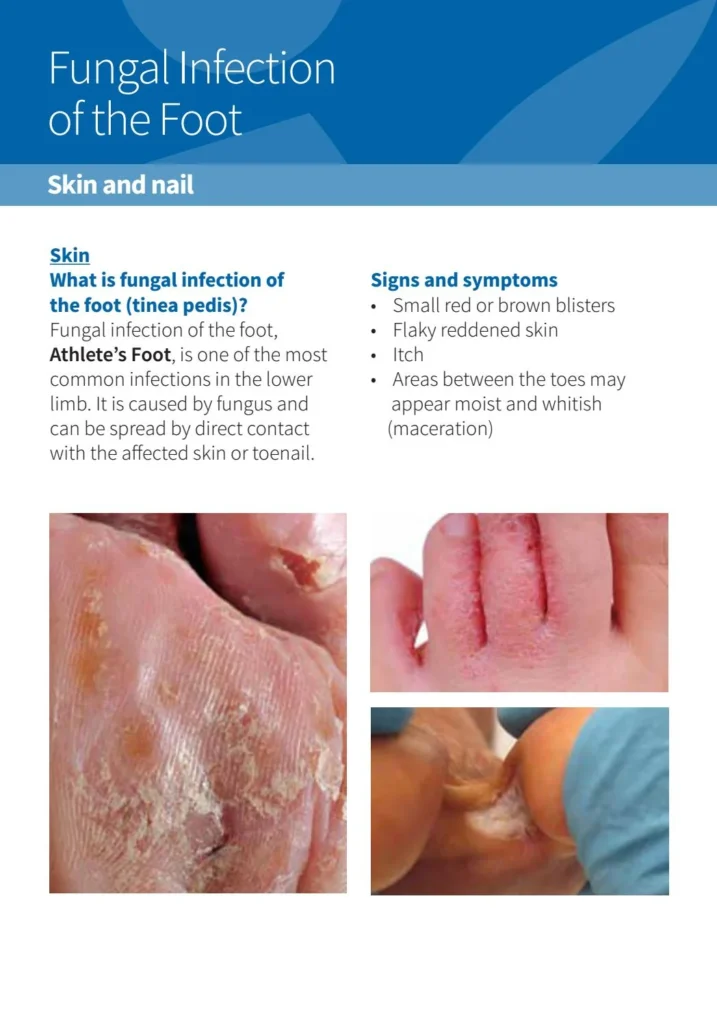
Fungal Infections: Beyond Just Discomfort
Athlete’s Foot: A Common Foe
Fungi are attracted to moist, warm conditions, making sweaty feet encased in shoes a prime target for infections like athlete’s foot. These infections can cause skin breakdown and release unpleasant odors.
Ventilation is Key
Proper shoe ventilation is essential to prevent fungal growth and the associated odors, as fungi flourish in moist environments.
Hygiene: A Direct Route to Foot Odor
Regular Cleansing
Maintaining foot cleanliness through regular washing is vital to remove bacteria, fungi, and their food sources, such as sweat and dead skin cells. Neglecting foot hygiene invites odor-producing organisms.
Importance of Dryness
Keeping feet dry is critical in combating foot odor. Moisture is a breeding ground for odor-causing bacteria and fungi, so thorough drying, especially between the toes, is necessary.
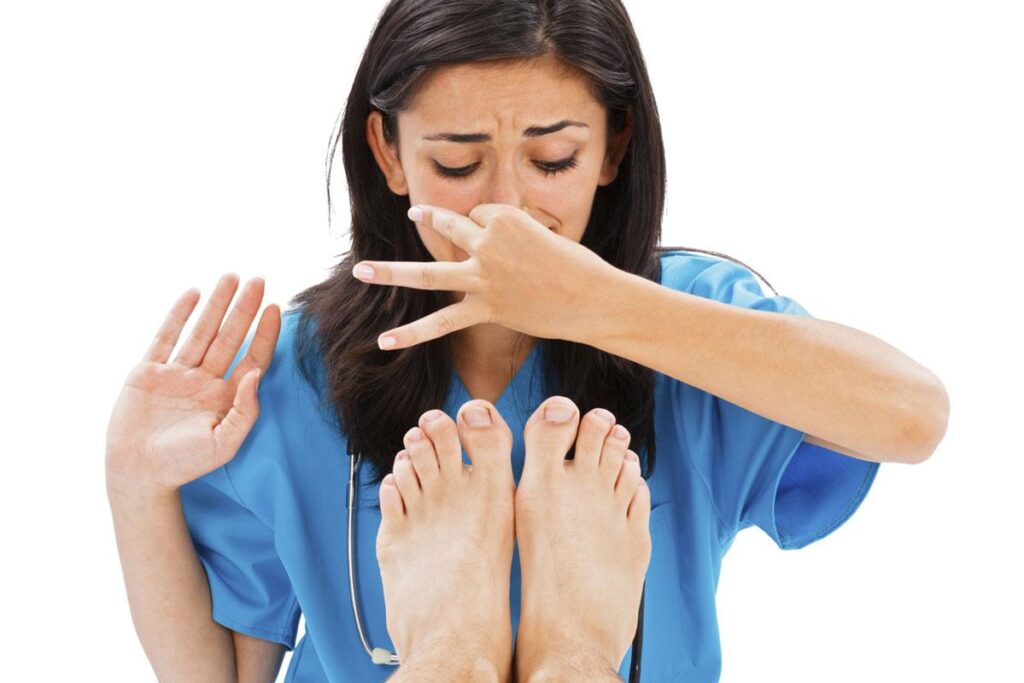

Diet: The Unexpected Factor
Dietary Influences on Foot Odor
What you consume can impact foot odor. Foods rich in garlic, onions, and spices can intensify the smell of sweat when their volatile sulfur compounds mix with skin bacteria.
Eating for Odor Prevention
A balanced diet and adequate hydration can mitigate foot odor. Diets high in sugar can exacerbate fungal and bacterial growth, whereas consuming whole grains, vegetables, and proteins can help regulate body odors, including those from feet.
Effective Tactics for Eliminating Foot Odor
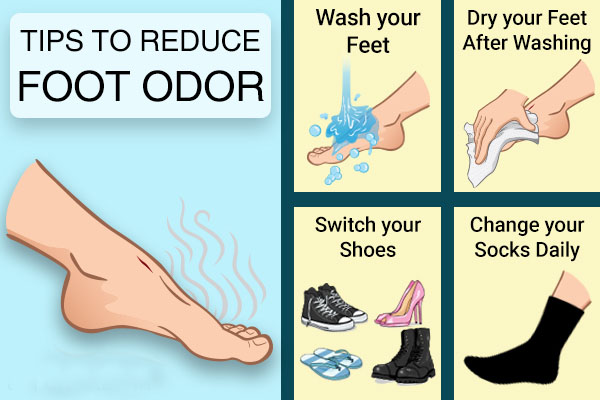
Maintaining odorless feet requires a comprehensive approach that encompasses various strategies. Here are some effective methods to ensure your feet stay fresh and free from unpleasant smells:
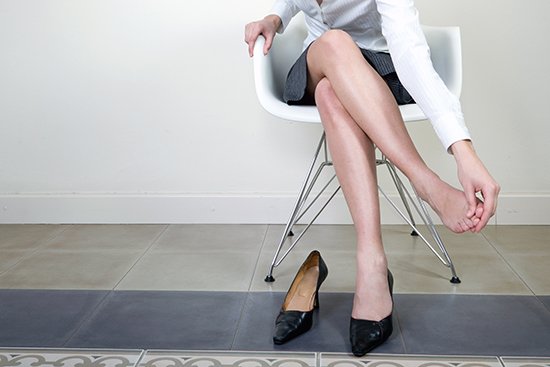
1. Enhance Foot Hygiene
Daily Cleansing
Use antibacterial or antimicrobial soap for daily foot washing. This practice helps remove sweat, bacteria, and the dead skin cells that bacteria feed on.
Meticulous Drying
Moist environments foster bacterial growth. Thoroughly drying your feet, especially between the toes, after washing is crucial for preventing odor.
2. Moisture Control
Choosing the Right Shoes
Opt for shoes made of breathable materials like leather, canvas, or modern mesh fabrics to promote air circulation and reduce sweat accumulation.
Opting for Moisture-Wicking Socks
Select socks made from materials that effectively pull moisture away from the skin, such as merino wool, bamboo, or specific synthetic fibers, to keep feet dry.
3. Shoe Rotation and Care
Rotating Footwear
Wearing the same shoes daily can hinder them from completely drying out, leading to moisture retention. Rotating between different pairs allows shoes to air out properly.
Deodorizing Footwear
Use sprays, powders, or activated charcoal inserts to absorb excess moisture and neutralize odors in your shoes.
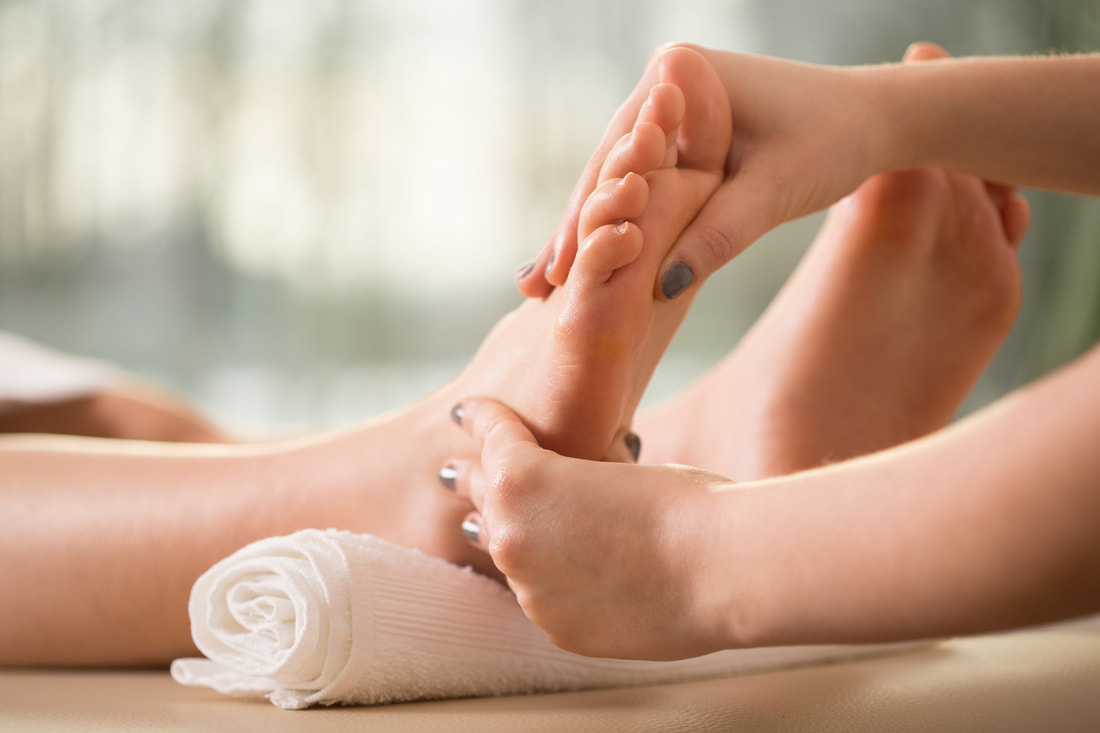
4. Natural Remedies
Tea Tree Oil Application
Tea tree oil, known for its antibacterial and antifungal properties, can be applied directly with a carrier oil or used in a foot soak to combat odor.
Vinegar Foot Baths
Soaking your feet in a vinegar and water solution can alter the skin’s pH, making it less hospitable to bacteria. A ratio of 1 part vinegar to 2 parts water is typically effective.
5. Lifestyle Modifications
Dietary Changes
Reducing consumption of odor-inducing foods such as garlic, onions, and certain spices may decrease foot odor by affecting the scent of your sweat.
Hydration
Drinking ample water helps regulate body temperature and can reduce excessive sweating, a primary factor in foot odor.
6. Professional Interventions
Using Foot Antiperspirants
Applying antiperspirant to the feet can temporarily block sweat ducts, reducing moisture and odor.
Consultation with a Podiatrist
Persistent foot odor or signs of infection warrant a visit to a podiatrist. They can provide stronger treatments or identify any underlying conditions contributing to the odor.
By integrating these strategies into your daily routine, you can effectively combat foot odor, ensuring your feet remain fresh and odor-free.
Lifestyle Adjustments for Fresher Feet
Adopting certain lifestyle habits can significantly enhance your foot freshness, complementing direct treatments for foot odor. Here’s a closer look at some effective lifestyle changes that can help keep your feet odor-free and healthy.
Optimize Your Diet for Foot Freshness
The connection between what you eat and foot odor is more significant than you might think. Foods that tend to increase body odor, such as garlic, onions, and certain spices, can also influence the scent of your sweat, including that of your feet. Incorporating zinc-rich foods like pumpkin seeds and various seafood into your diet can help neutralize foot odor from the inside out. Emphasizing a diet rich in fruits, vegetables, and lean proteins can improve overall health, skin condition, and reduce excessive sweating.
Hydration is Key to Healthy Feet
Staying well-hydrated is crucial for regulating body temperature and minimizing excessive sweating. Drinking plenty of water daily helps flush toxins from your body, which may reduce the potency of your sweat’s odor. Aim for at least 8 glasses of water each day, and consider adding lemon or cucumber slices for an extra detoxifying effect.
Exercise to Improve Circulation and Sweat Management
Regular physical activity boosts blood circulation, benefiting overall foot health and aiding in body temperature regulation to decrease sweating. After exercising, ensure you clean and thoroughly dry your feet, and allow your workout shoes to air out properly before their next use.
Manage Stress to Keep Sweating in Check
Stress directly influences your sweating rate. Elevated stress levels can lead to more sweating, potentially exacerbating foot odor issues. Incorporating stress-reduction techniques such as yoga, meditation, or deep breathing into your daily routine can help manage both stress and sweating, thereby reducing foot odor.
Regular Foot Checks for Early Problem Detection
Make it a habit to inspect your feet regularly for any signs of fungal infections, sores, or unusual changes. Early detection and treatment of these issues can prevent them from contributing to odor problems. If you notice anything concerning, consult a healthcare professional promptly.
Selective Footwear for Optimal Ventilation
Choosing the right shoes is vital for preventing foot odor. Opt for high-quality shoes with good ventilation to prevent moisture accumulation, which can foster bacterial and fungal growth. Materials like leather and breathable mesh are excellent choices, and when possible, wear open-toed sandals to allow your feet to breathe freely.
By integrating these lifestyle habits into your routine, you can significantly improve the freshness of your feet, ensuring they remain healthy and odor-free.
FAQ Section
Q: What causes foot odor?
A: Foot odor is primarily caused by sweat and bacteria. Feet have numerous sweat glands, and while sweat itself is odorless, it creates a moist environment where bacteria thrive, producing smelly by-products.
Q: How can I prevent foot odor?
A: Regular foot hygiene, using moisture-wicking socks, choosing breathable footwear, and maintaining a healthy diet can significantly reduce foot odor. Additionally, incorporating natural remedies and ensuring proper foot ventilation are key strategies.
Q: Can diet really affect foot odor?
A: Yes, your diet can influence foot odor. Foods rich in garlic, onions, and spices can intensify the smell of your sweat. Eating zinc-rich foods and maintaining a balanced diet can help minimize foot odor.
Q: What if home remedies don’t work?
A: If foot odor persists despite home remedies, it may be time to consult a podiatrist. They can offer stronger treatments and diagnose any underlying conditions contributing to the odor.
Conclusion
Combating foot odor requires a multifaceted approach that includes good hygiene practices, strategic footwear choices, dietary considerations, and lifestyle adjustments. By understanding the underlying causes and implementing these strategies, you can effectively eliminate foot odor, leading to fresher, healthier feet. Remember, if you struggle with persistent foot odor or signs of infection, seeking professional advice is crucial to finding a lasting solution. Embrace these tips and enjoy the confidence that comes with having odor-free feet.
| Arch Support |
| Arch Supports |
| Best Arch Support Insoles |
| Best Insole for Plantar Fasciitis |
| Insole for Flat Feet |
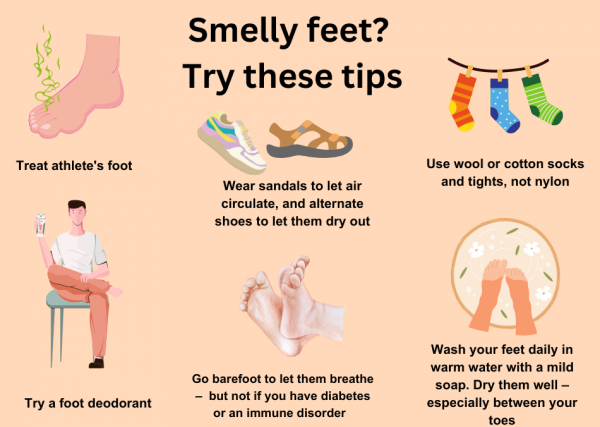
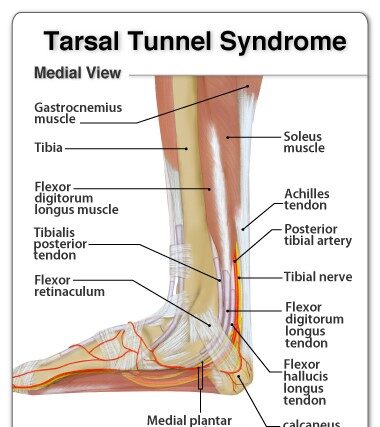
MOST COMMENTED
Animal-Based Proteins / Casein Protein / Dietary Protein / High-Protein Diets / Pea Protein / Plant-Based Proteins / Protein / Protein Deficiency / Protein Supplements / Proteins / Whey Protein / Whey Proteins
Is Protein Powder Safe for Teenagers and Children?
Animal-Based Proteins / Casein Protein / Dietary Protein / High-Protein Diets / Pea Protein / Plant-Based Proteins / Protein / Protein Deficiency / Protein Supplements / Proteins / Whey Protein / Whey Proteins
Unlock the Power of Proteins for Optimal Gut Health
Multivitamin
Total Health: Multivitamin for Active Lifestyles
Multivitamin
WellnessFusion: Complete Multivitamin Support
Dietary Supplement
Revitalize Your Health: The Magic of Red Yeast Rice Capsules
Foot care / Foot Health
Revitalize Your Foot Care Routine: Essential Tips for Optimal Foot Health
Foot Problem / Diabetics / Foot Health
Diabetics: Mastering Footwear Selection for Enhanced Foot Health and Ultimate Comfort
Exercises and Footwear Tips for Hammertoe Relief / Foot care / Foot Health / Foot Pain / Foot Problem / Hammertoes
Unlock Effective Exercises and Footwear Tips for Hammertoe Relief
Hammertoes / Foot Health / Foot Pain / Foot Problem
Unlock Relief: Essential Guide to Hammertoes Causes, Symptoms, and Treatments
Foot Problem / Foot Health
Revolutionize Your Recovery: Natural Remedies for Plantar Fasciitis – Fresh Home Keepers